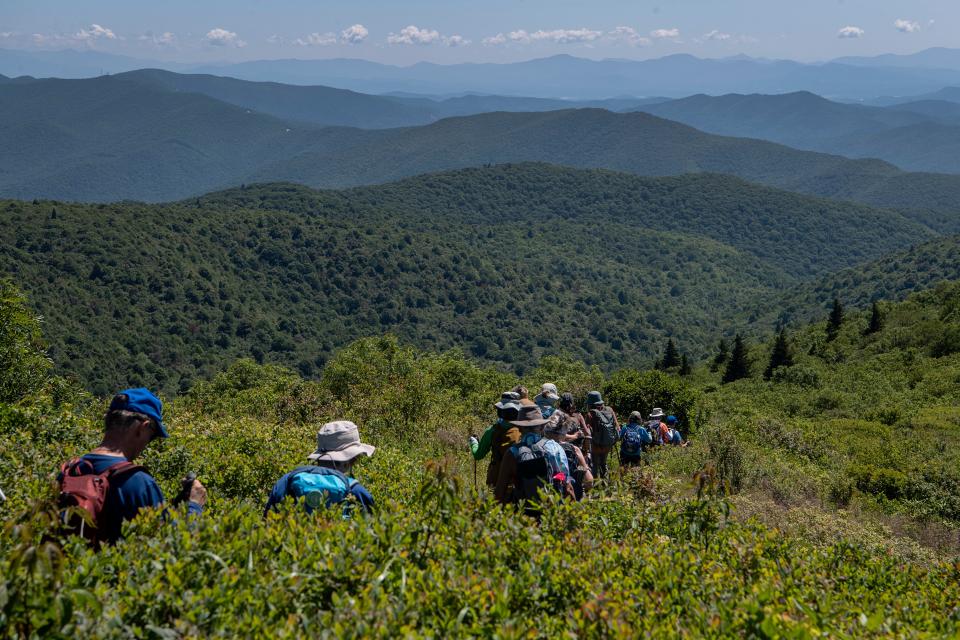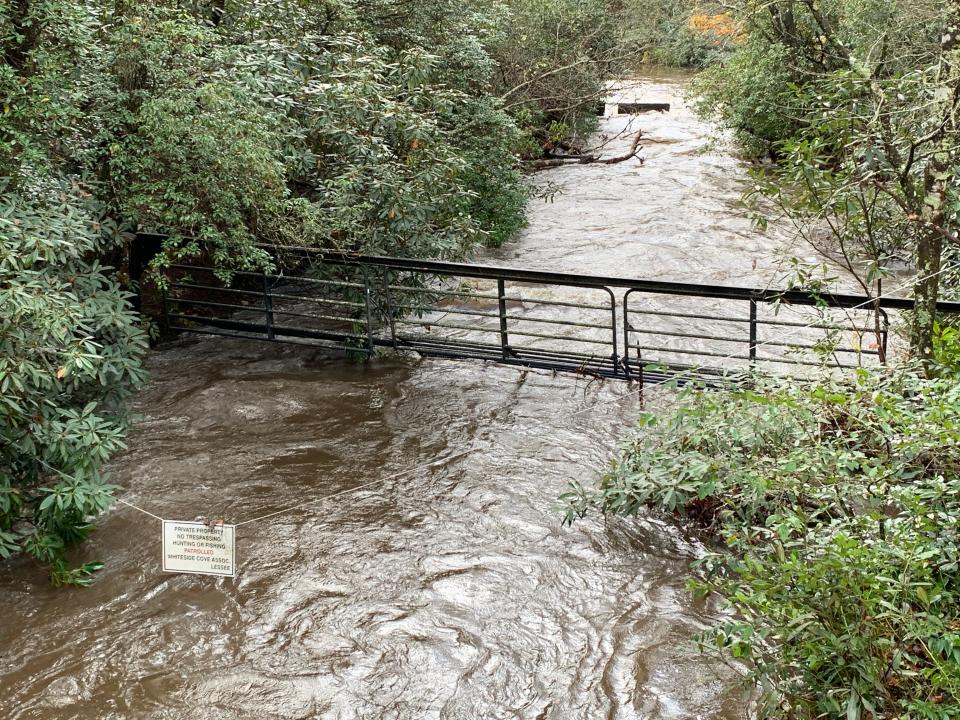Asheville, other forest advocates sue U.S. Forest Service over timber target analysis
ASHEVILLE – A local coalition of environmental advocates filed a lawsuit against the U.S. Department of Agriculture Forest Service and seven of its leaders, alleging that the federal agencies violated laws that require them to consider and disclose carbon impacts when developing timber targets. The plaintiffs are asking the court to halt a logging project in Nantahala National Forest, as part of their demands.
Asheville nonprofit MountainTrue, The Chattooga Conservancy and Debbie Kruzen filed the lawsuit Feb. 26 in U.S. District Court in Washington D.C. Kruzen is a Missouri woman who lives near Mark Twain National Forest, which is allegedly impacted by the Forest Service's wrongdoing. The Southern Environmental Law Center, which has an Asheville office, filed the lawsuit on behalf of the groups.
The lawsuit argues that the federal agencies and agents violated the National Environmental Policy Act, which they assert requires agencies to analyze and disclose direct, indirect and cumulative effects of their actions. By not adequately contemplating, or making public, how the Forest Service’s logging targets affect carbon emissions, the groups argue that the federal government violated the law.

“Despite authorizing numerous timber projects each year to meet these targets, the Forest Service has never accounted for the aggregate carbon effects of actions taken to fulfill its timber targets,” the lawsuit reads.
The USDA sets national targets for timber, which dictate logging throughout national forests. Regions throughout the national forest system receive assignments for their share of the target, which eventually filters to individual forests, the complaint says. By removing and storing carbon, forests play a critical role in the fight against climate change. Those efforts are hindered by the top-down timber targets, the groups argue.
“They haven’t fully evaluated the impacts of their drive to meet these timber targets on how that will exacerbate the negative impact of these activities on climate change,” South Carolina-based Chattooga Conservancy Executive Director Nicole Hayler told the Citizen Times Feb. 28. “The forest needs to be managed as a tool to mitigate climate change, not add to the ravages of its negative effects.”
The environmental groups are requesting that the court declare that their interpretation of the law is correct.
They are also asking the court to stop activities dedicated to meeting its 2024 fiscal year timber target the Eastern and Southern forest regions, until the federal government is in compliance with laws. This includes an exception for harvests to protect from wildfire risks.

Finally, the groups are asking that the court stop three timber harvests in Western North Carolina' Nantahala National Forest, Sumter in South Carolina and Mark Twain in Missouri, until agencies demonstrate compliance with federal law.
The Nantahala National Forest covers more than a half-million acres of mountainous terrain in the westernmost region of WNC. It is the largest of the state’s four national forests and is open to timber harvesting, hiking, fishing, hunting, paddling, horseback riding and more activities. Together with the half-million-acre Pisgah, they are two of the most-visited national forests in the country.
Logging in WNC's national forests have long been a point of contention. The Pisgah-Nantahala land management plan, approved nearly a year ago after more than a decade of work, received criticism from groups like SELC for its allowance of logging and road building in certain areas.
These groups' fears came to fruition, sparking action. In the end of January, a group of advocacy organizations filed a lawsuit against the Forest Service, arguing that a portion of a project created under the new plan was too aggressive.
A win for the environmental groups in the lawsuit filed in the nation's Capitol would force the Forest Service to consider and disclose the carbon impact of its timber targets, Asheville-based SELC attorney Patrick Hunter told the Citizen Times Feb. 27. What the forest service does with that analysis, he said, is up to them. Hunter also criticized the Biden administration, saying that its rhetoric on addressing climate change is not matching its timber policy in national forests.
“We have a White House that’s saying that it’s employing an all government approach to address climate change, and it’s working to reduce carbon emissions, and a Forest Service that is saying that it’s logging more than it had the previous decade,” Hunter said.
The groups are suing the federal agencies through the Administrative Procedure Act. Hunter said that the environmental policy law in question does not allow for parties to bring civil actions. The APA allows aggrieved parties to bring civil actions for laws that do not provide for that remedy.
U.S. Forest Service spokesperson Wade Muehlhof declined Feb. 27 to comment to the Citizen Times, citing pending litigation.
More: Nantahala environmental analysis released; advocates criticize logging and road building
More: Conservation groups sue U.S. Forest Service over unlawful plan to log Nantahala
More: Asheville groups threaten to sue US Forest Service over Endangered Species Act violation
Mitchell Black covers Buncombe County and health care for the Citizen Times. Email him at mblack@citizentimes.com or follow him on Twitter @MitchABlack. Please help support local journalism with a subscription to the Citizen Times.
This article originally appeared on Asheville Citizen Times: Environmental lawsuit: Forest advocates sue feds over timber targets

